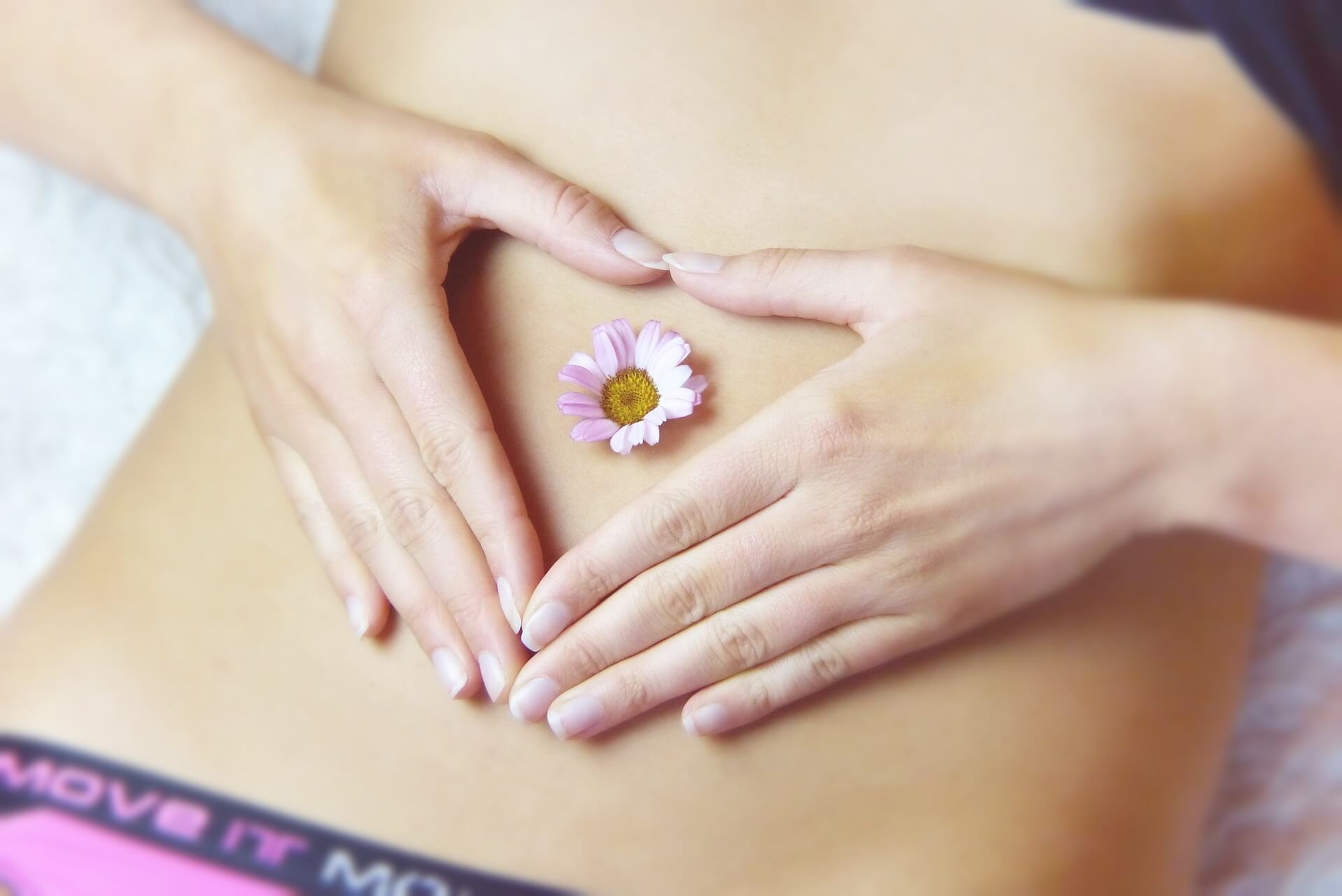7 Digestive disorders and how to fix them
Most digestive issues are related to lifestyle, diet, or stress. However, some digestive disorders such as celiac disease and inflammatory bowel diseases have a genetic background too. Changes in your lifestyle can help to achieve a healthy gut and improve many of these problems.
In this post, I aim to explain 7 of the most common digestive issues and give tips on how to reduce the symptoms and prevent these problems in the long term.

 Indigestion
Indigestion
Symptoms of indigestion include feeling full and bloated after a meal, farting, and having acid reflux.
One of the causes can be to have low stomach acid or also called hydrochloric acid (HCl). HCl is made in the stomach and it's used to break down food, especially proteins, but also aids in mineral and vitamin B12 absorption. HCl also acts as the first line of defense against ingested bacteria. Thus, having low acid levels may cause nutritional deficiencies, imbalances in the gut bacteria, and general discomfort due to undigested food.
But how do you know if you actually have low HCl levels? These are two tests that you can do at home.
- Baking soda acid test: this test is easy, cheap, and safe. However, it has a lot of variables that can trigger false positives or negatives, so you should perform it several times. Mix 1/4 tsp of baking soda with 120 mL of cold water and drink it in the morning on an empty stomach. If it takes more than 5 minutes or you do not burp at all, it's a sign of low stomach acid.
- Betaine HCl challenge test: this gives reasonably reliable results. You will need to buy pills of Betaine HCl with pepsin. When you are having a meal with protein, take 1 tablet and continue eating. If you feel a burning sensation in your chest, it means that your acid levels are fine. If you do not, then for the next protein meal, increase the amount to 2 pills. This goes on until you feel the burning feeling. When you get there, reduce the number of pills by one in your next meals. Continue with this amount until you feel the burning sensation again, then reduce until you only have to take 1 pill. After that, stop.
I also did this test myself and needed to take as many as 11 pills in order to feel the burning sensation. I know, it's a lot! These are the Betaine HCl pills I took.
And there is more! When food is not digested properly, particles arrive at the colon where bacteria ferment them. Here we are not only talking about resistant starch and fiber, but also about undigested proteins and fats, whose byproducts can lead to bloating, smelly gas, and constipation. In this case, taking digestive enzymes can help ease these complaints.
 Diarrhea
Diarrhea
Diarrhea is characterized by frequent loose, watery stools or a frequent need to go to the toilet. Common causes include Inflammatory Bowel Syndrome (IBS), painkillers, bacterial and viral gut infections, and diabetic medication. Moreover, food intolerances such as lactose intolerance, alcohol, and artificial sweeteners may also cause diarrhea.
Drink plenty of fluids and take antidiarrheal drugs if the problem persists for several days.
 Constipation
Constipation
Another digestive issue is constipation. The main sign of constipation is not having a bowel movement or having them infrequently (less than 3 times a week). Several factors may lead to irregular bowel movements: low or too-high fiber diet, dehydration, certain medications, and a disruption of the normal routine or diet.
Laxatives (stool softeners) can be used if the constipation is very persistent. However, they can weaken your bowel muscles and it is very easy to become dependent on them. Only use them on specific occasions. If you choose to take laxatives, I recommend taking magnesium citrate pills. Magnesium acts as an osmotic laxative by attracting water into your intestines. The water helps soften and bulk up the stool, which makes it easier to pass.
 Inflammatory Bowel Syndrome (IBS)
Inflammatory Bowel Syndrome (IBS)
IBS is a condition in which the colon muscle contracts more often. The cause is unknown, but certain foods, gastrointestinal infection or food poisoning, medicines, and stress are factors that can trigger IBS.
Typical symptoms are abdominal pain, cramps, excess gas, bloating, change in bowel movement, constipation, or diarrhea.
Try the low FODMAP diet. In this diet, foods containing fermentable short-chain carbohydrates are reduced. Bacteria ferment these carbohydrates resulting in increased volumes of liquid and gas in the intestine, contributing to the IBS symptoms.
Foods such as ginger, peppermint, and chamomile may also help reduce some IBS symptoms.
Subscribe to our blog, get notified when we release a new post and receive a shopping list to heal your gut for free!
 Irritable Bowel Disease (IBD)
Irritable Bowel Disease (IBD)
IBDs include Crohn's Disease (CD) and Ulcerative Colitis (UC). Both disorders may appear due to an overstimulated immune system that leads the body to attack the gastrointestinal tract and the creation of ulcers. The causes of IBD are not known, but it is thought that environmental factors and stress may contribute. People may also have a genetic predisposition.
Symptoms of IBD include abdominal pain, diarrhea, bloody stools, fever, fatigue, weight loss, and malnutrition.
Currently, there is no cure as it is a chronic disease. However, IBD can be controlled with anti-inflammatories, steroids, and immunosuppressants.
 Celiac Disease
Celiac Disease
Celiac disease is a different type of digestive issue. It is an autoimmune disorder where the person is unable to eat gluten (a protein found in rye, barley, wheat, and others) without triggering inflammation in the small intestine. When this happens, the villi (finger-like protrusions of the small intestine that help in the absorption of nutrients) get damaged.
Some of the symptoms are abdominal pain, vomiting, constipation, bloating, chronic diarrhea, fatty stool, and bad odors. It is normally diagnosed with a blood test and stool analysis.
There is no cure, but people can avoid most of the symptoms by following a gluten-free diet. People can still enjoy rice, quinoa, lentils, soy, corn, and amaranth.
 Reflux
Reflux
Heartburn or also called gastroesophageal reflux (GER) may be accompanied by a sour taste in the mouth or hypersalivation. It can be dangerous as, over time, it can harm the esophagus and lead to esophageal cancer.
What causes acid reflux? Certain foods and drinks such as alcohol, chocolate, coffee, fatty and spicy foods; being overweight, smoking, stress, pregnancy, and anti-inflammatory painkillers (ibuprofen).
Contrary to what most people think, acid reflux may be caused by low stomach acid. The esophagus sphincter is stimulated by high stomach acid (generally after a meal) and it closes. When there is little stomach acid it remains open, and this is why heartburn appears. These are the Betaine HCl pills I took.

Tips to prevent or reduce symptoms of most digestive issues:
- Eat more fiber and increase it slowly. If you increase too fast, there is a big chance you will be bloated from it. Your gut microbiota is not used to such large amounts of fiber and it will sit in your intestine for a long time. Aim for 35-50 grams a day.
- Eat more fruits, vegetables, whole grains, legumes, nuts, and seeds. Basically, 80% of your foods should come from a whole-food plant-based diet.
- Include more Omega-3 foods. The recommended dose is 250-500 mg EPA/DHA per day. Eat more flaxseeds, chia seeds, walnuts, and algae.
- Drink more water. The more fiber you take, the more water you need to drink since fiber absorbs a big part of it. You want to keep it moving!
- Reduce or eliminate caffeine, alcohol, dairy products, artificial sweeteners, and fried and sugary foods.
- Eat smaller, more frequent meals or try Intermittent Fasting (IF). Some people feel less bloated when eating smaller meals throughout the day. Others prefer to eat all their meals in an 8-hour period and fast for 16 hours, thus giving a break to the digestive system.
- Chew your food well. Really, chew it a lot.
- Keep a record of what foods you eat and which symptoms you experience.
- Try the elimination diet. Remove certain foods for an extended period of time (2 weeks at least) to see if your digestive symptoms improve.
- Exercise regularly. This helps to have regular bowel movements.
- Work on your stress levels. There are several things you can try meditation, going for a walk, yoga, or reading a book.
- Do not resist the urge to go to the toilet.
Digestive issues tend to be related to your diet and lifestyle but, if you follow these guidelines, you should be able to minimize the symptoms.